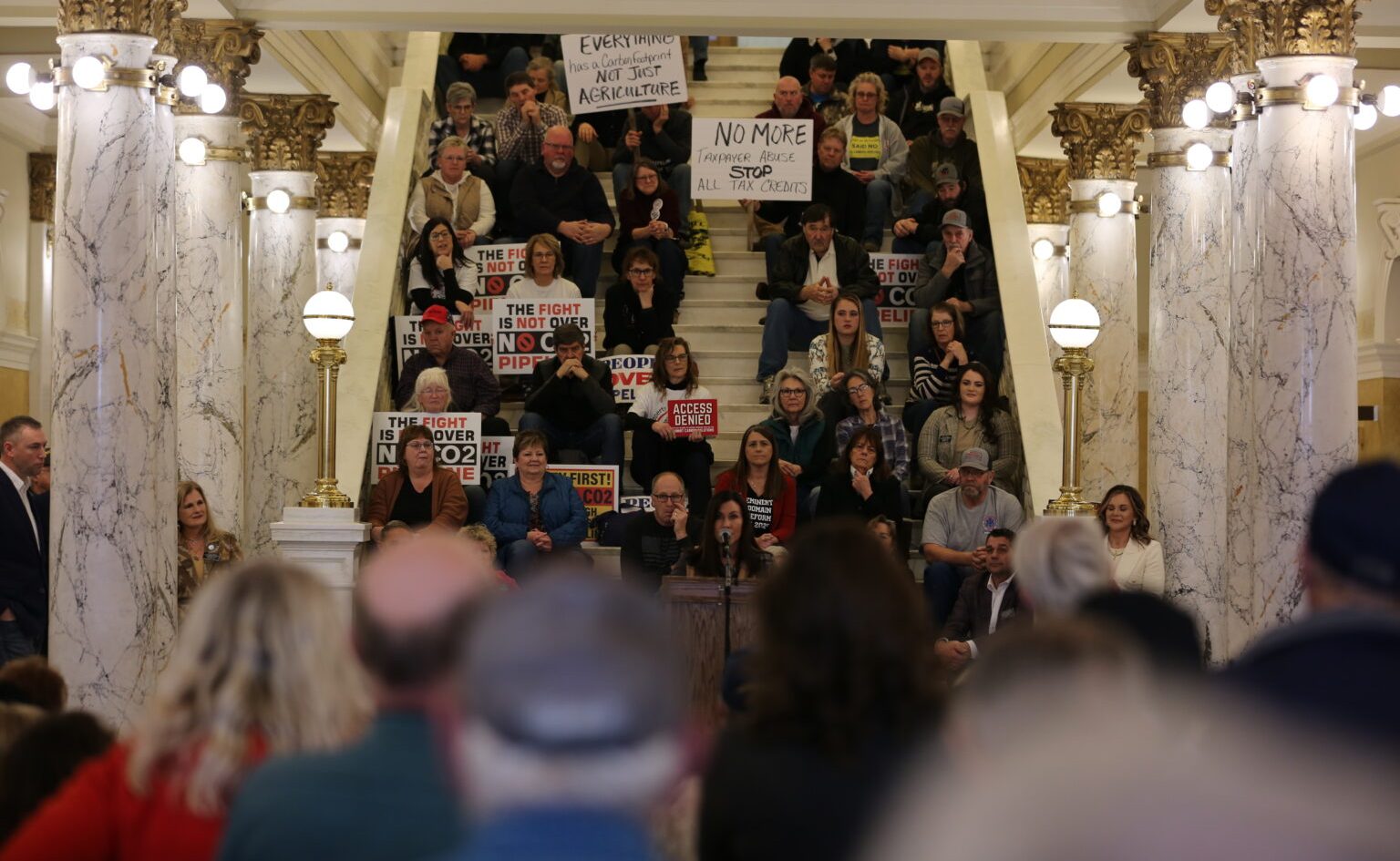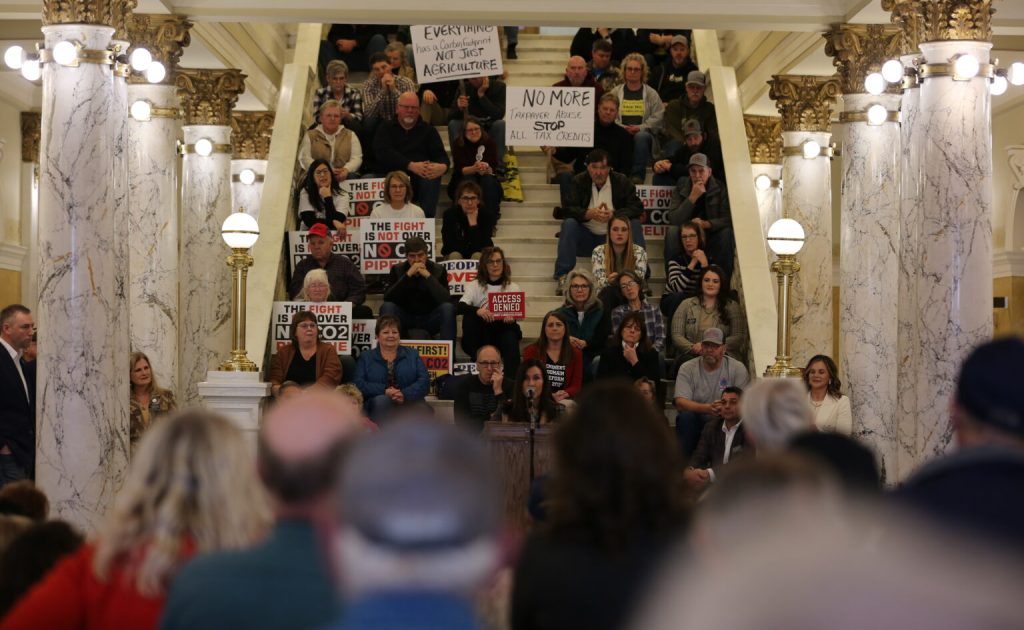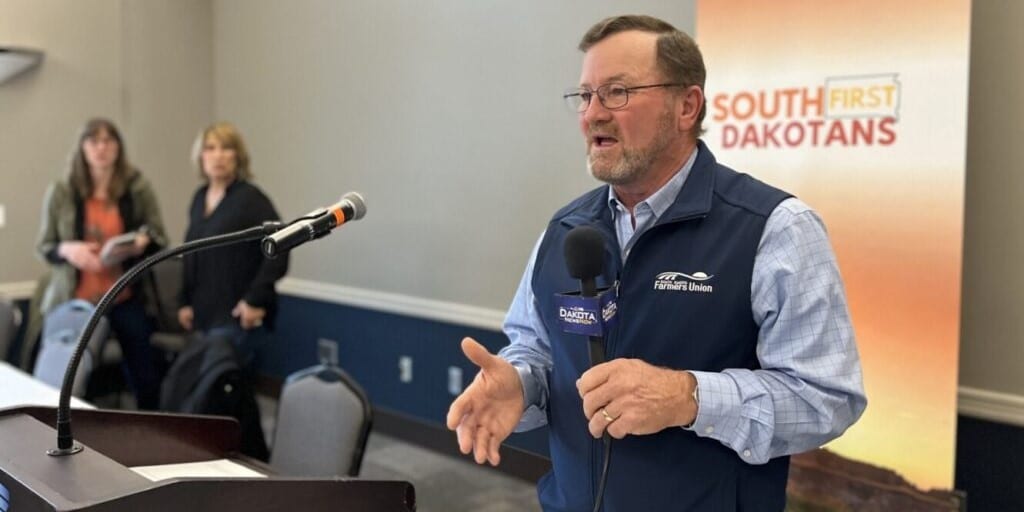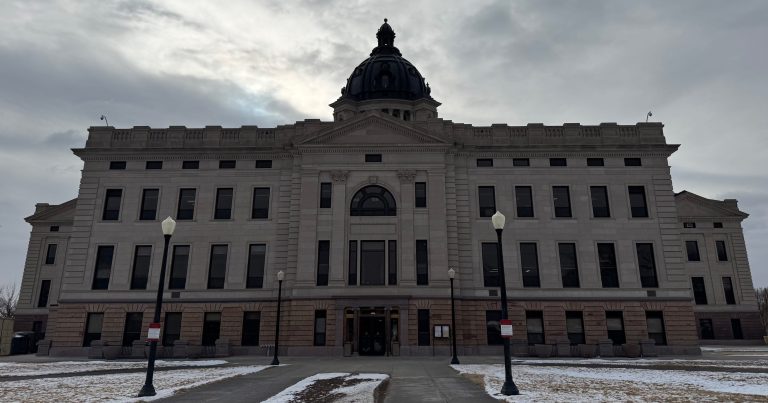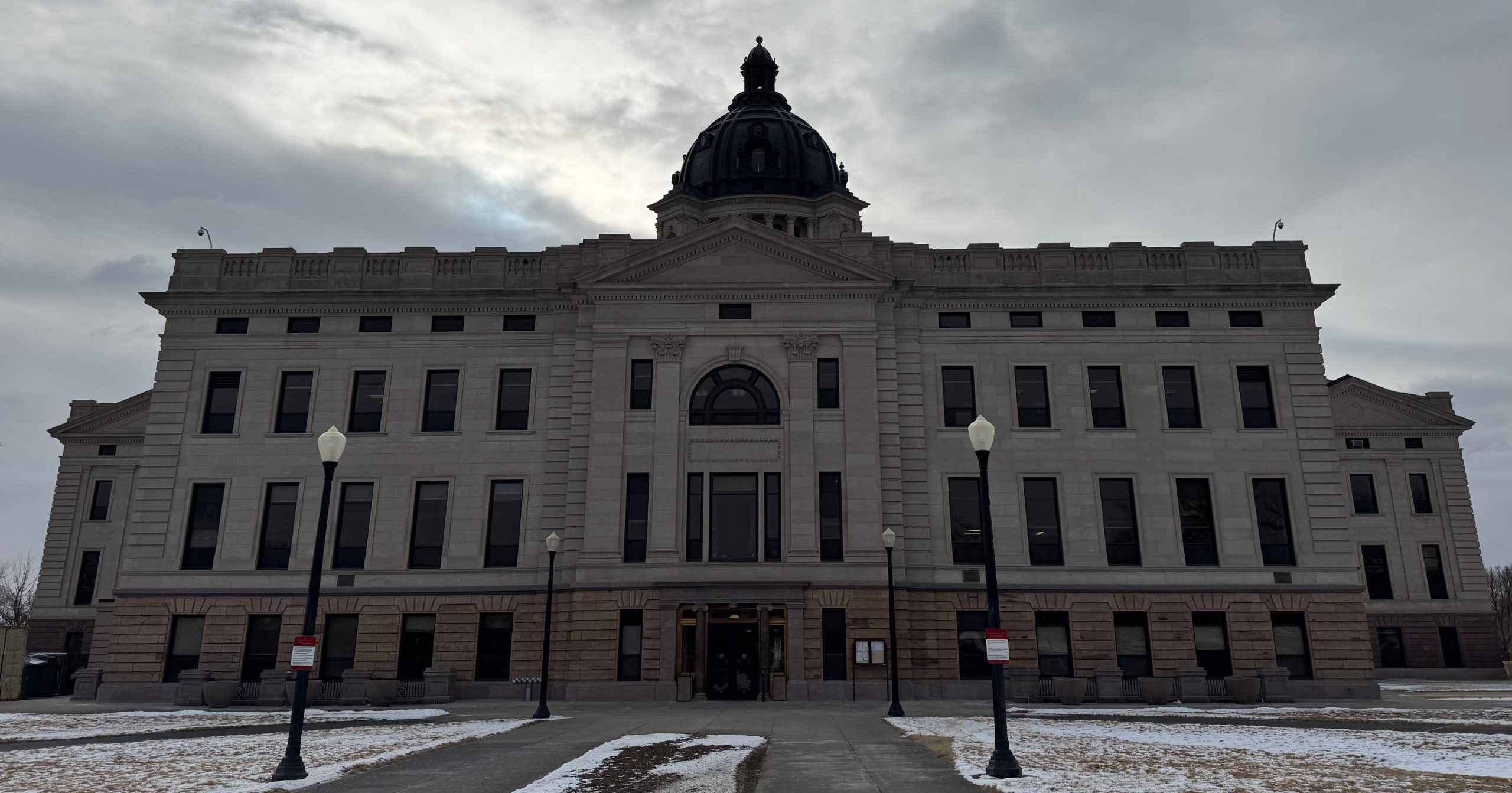PIERRE, S.D. — Standing before a crowd of hundreds of carbon dioxide pipeline opponents Monday at the South Dakota Capitol, a lawmaker announced her bill to ban the use of eminent domain for carbon pipeline projects.
Rep. Karla Lems, R-Canton, introduced the bill to attendees as “a building block” toward protecting property rights.
“This bill will bring legislative certainty, and constitutional certainty, to the people of South Dakota,” Lems told the crowd.
The rally — held a day before Gov. Kristi Noem’s State of the State address will kick off the 2025 legislative session — brought together landowners, property rights advocates and other critics of carbon pipeline development.
Speakers voiced frustration over Iowa-based Summit Carbon Solutions’ potential use of eminent domain to acquire land for its proposed pipeline. The $9 billion project would capture some of the carbon dioxide emitted by 57 ethanol plants in five states, including eastern South Dakota, and transport it to an underground storage area in North Dakota. The project would capitalize on federal tax credits intended to incentivize the prevention of heat-trapping carbon emissions into the atmosphere.
Some landowners on the Summit route have refused to sign agreements, known as easements, granting access to their land. The company may seek to use eminent domain, which is a legal process to force land access in exchange for fair compensation determined by a court. The power has typically been used for projects such as electrical power lines, oil pipelines and water pipelines.
Lems said her legislation will be introduced Tuesday and would specifically target carbon pipelines.
Incoming Sen. Mark Lapka, R-Leola, will carry the bill in the state Senate, while Lems will carry the bill in the House of Representatives. Both own land that would be crossed by the pipeline.
Some other legislators had already pre-filed their own bill to ban eminent domain for carbon pipelines prior to Monday. That bill was not discussed at the rally.
Rally speakers noted that in August, the South Dakota Supreme Court ruled that Summit had not yet proven its status as a “common carrier,” a designation necessary to exercise eminent domain. The court remanded the case to a lower court for further proceedings, leaving Summit’s eminent domain eligibility unsettled.

The bill comes after years of contentious debate over carbon pipeline development. Lawmakers previously considered similar bills, but they faced resistance and failed, with opponents claiming such restrictions could stifle economic development and hurt South Dakota’s ethanol industry and the corn farmers who depend on it.
Pipeline supporters have defended the use of eminent domain, asserting the project serves the public good by increasing ethanol demand and addressing climate change.
This year, legislation banning eminent domain may receive more support. Eleven Republican legislators lost their reelection campaigns last year after supporting pipeline legislation that did not include an eminent domain ban. Republican legislators have also replaced their leadership team with lawmakers like Lems — set to serve as House speaker pro tempore — who are critical of Summit’s project.
Summit is seeking a permit from South Dakota’s Public Utilities Commission. The commission will host a series of public input meetings Wednesday through Friday in eastern South Dakota cities near the pipeline route.
The project already has a storage permit in North Dakota and route permits in North Dakota, Iowa and Minnesota, while Nebraska has no state permitting process for carbon pipelines. The project also faces litigation from opponents in multiple states.
